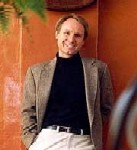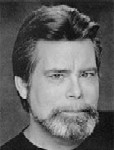Since Dave Itzkoff has seen fit to produce his top ten science fiction novels “for the ages,” I asked Brad Itzkoff, who is Dave’s older brother, to offer his top ten literary choices of all time. Brad tells me that he’s always been “a good older brother” to Dave. The two brothers have shared many days watching episodes of Hogan’s Heroes together and can apparently quote entire scenes from memory. Dave has inherited much of his literary sensibiliites from his older sibling.



So here’s Brad Itzkoff’s list of favorites, with commentary, by the older brother of the writer of the Book Review’s new science fiction column. Titles are listed in alphabetical order.
Atlas Shrugged (1957)
By AYN RAND
Dude. I read this when I was a teenager and it blew me away. I still live by Ms. Rand’s philosophy. The “Money” speech still gives me goosebumps. Plus, rough sex scenes! Always the stuff of literature! That’s the only reason that a chick is on the list. By the way, I have a nude photo of Ayn Rand that I’m selling on eBay if anybody wants it!
The Da Vinci Code (2003)
By DAN BROWN
Arranged in very short chapters that you can read between commercial breaks, there’s a reason why this novel has attained its stature as an instant classic. Just edgy enough to make you think at times, just restrained enough not to be offensive. The way a novel should be.
The Firm (1991)
By JOHN GRISHAM
Before I read this breathless thriller, I had no idea what it was like to be a lawyer. I figured it was a bit like being Perry Mason. But, boy, am I glad Grisham, a true genius if ever there was one, set me straight!
Hawaii (1959)
By JAMES MICHENER
My father gave this book to me when I was sixteen. And he gave me an ultimatum: read it or move out. Well, of course, not having a job, I was obliged to read it. But as it turned out, pops was right! This was a manly book written by a manly man. One of the great novels of the twentieth century!
The Hitchhiker’s Guide to the Galaxy (1979)
By DOUGLAS ADAMS
Yes, I know it’s science fiction. But it made me laugh. This book gets a space because it’s so easy to read.
Jonathan Livingston Seagull (1972)
By RICHARD BACH
It’s not just an exciting story about birds, but it’s a parable for the modern age. I first read this after a bad acid trip as a teenager. Well, needless to say, I laughed my ass off! Then I read it again, with the Neil Diamond score playing in the background, and I must say that Bach taught me exactly how to live my life. Had it not been for Jonathan Livingston Seagull, it’s quite likely that my little brother wouldn’t have been the success he is at the New York Times! I’m so proud of him!
Love Story (1970)
By ERICH SEGAL
I don’t understand why people badmouth this book. It certainly lives up to its title. It’s a story. And it deals with love. What more can you ask for?
A Prayer for Owen Meany (1990)
By JOHN IRVING
I sobbed myself to sleep many times during the six months it took for me to read this long, long, LONG novel. Plus, dwarfs are funny!
Scarlett (1991)
By ALEXANDRIA RIPLEY
A sequel to Gone With the Wind unfairly derided. Ripley takes her cue from the bodice-rippers and gives you all the answers to all the questions that Mitchell failed to answer in her book. I don’t know about you, but a book without even the tinge of ambiguity really isn’t worth my time. Don’t let the fact that she’s a chick prevent you from reading this book!
The Stand (1978)
By STEPHEN KING
The most brilliant novel of all time, and possibly the longest book I’ve ever read. I’ve spent far too many evenings staring into the distance, wondering when Captain Trips will come and kill me. Dave reminds me it’s just a novel, although I think Stephen King is a prophet! M-O-O-N, that spells classic!
I have to disagree with two of the books on this list. Love Story can’t be for a true romantic–no reason is ever given why these two people love each other, and love each other so quickly. And Scarlett for a true Gone With the Wind lover, as I am, was trashy. Ripley admitted hating Scarlett, Mitchell’s main character. If so, why was she chosen to write the sequel?